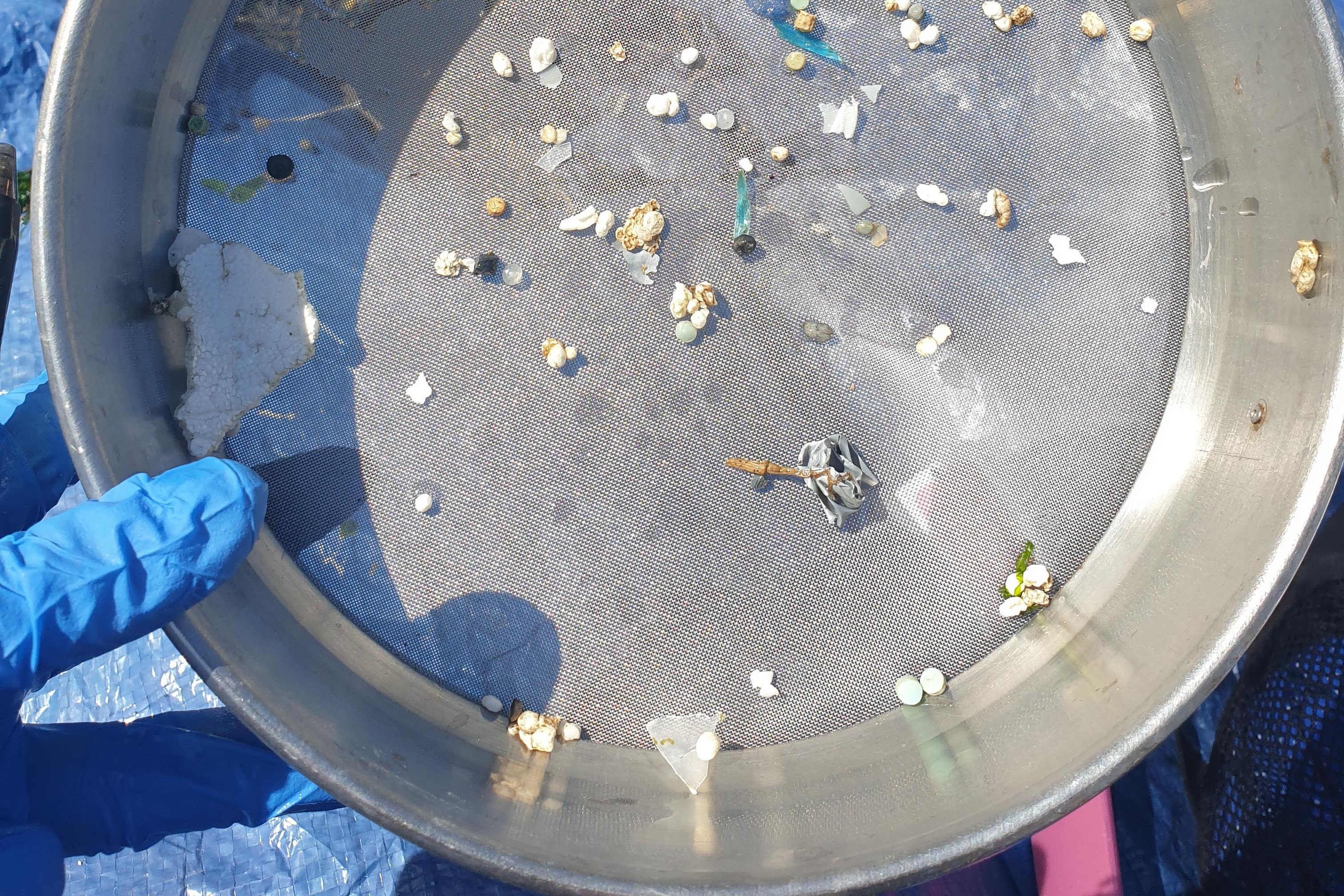Mechanical devices to capture plastic pollution trap marine organisms – study
Species such as sand eels, brown shrimp and crabs were captured by the device during research in Plymouth, Devon.

Your support helps us to tell the story
From reproductive rights to climate change to Big Tech, The Independent is on the ground when the story is developing. Whether it's investigating the financials of Elon Musk's pro-Trump PAC or producing our latest documentary, 'The A Word', which shines a light on the American women fighting for reproductive rights, we know how important it is to parse out the facts from the messaging.
At such a critical moment in US history, we need reporters on the ground. Your donation allows us to keep sending journalists to speak to both sides of the story.
The Independent is trusted by Americans across the entire political spectrum. And unlike many other quality news outlets, we choose not to lock Americans out of our reporting and analysis with paywalls. We believe quality journalism should be available to everyone, paid for by those who can afford it.
Your support makes all the difference.Mechanical devices to remove plastic and litter from marine environments can trap marine organisms, according to a study.
Researchers from the University of Plymouth’s International Marine Litter Research Unit say the devices are increasingly being considered as a way to address plastic pollution found across the world.
They studied a Seabin device, which continuously sucks water inwards and filters it before returning the cleaned water to the surrounding area, in Plymouth, Devon, between April and June 2021.
During 750 hours of operation, the device retained 1,828 items – 0.18kg of litter.
This was equivalent to 58 items per day and mainly comprised plastic pellets, polystyrene balls and plastic fragments.
At its current state of development, this study suggests that manual cleaning of ports, harbours and marinas, is more efficient and cost-effective
The Seabin captured one marine organism for every 3.6 items of litter, about 13 organisms per day, including species such as sand eels, brown shrimp and crabs.
About 60% of these organisms were found to be dead on retrieval, with the study indicating that some died after entering the device, the researchers say.
During the study, which is published in Marine Pollution Bulletin, five manual trawls were conducted at the same marina using nets from pontoons or vessels.
Manual cleaning collected an average of 19.3g of litter during cleans of up to five minutes, while the Seabin captured the equivalent of 0.0059g in a similar timeframe.
Florence Parker-Jurd, research assistant at the University of Plymouth and the study’s lead author, said: “At its current state of development, this study suggests that manual cleaning of ports, harbours and marinas, is more efficient and cost-effective.
“Notably manual cleans are selective, and this could lessen any potential risk to marine life.
“Given the increasing reliance on technological innovations, formal evaluations are necessary to their efficiency as similar may apply to other types of device.”
The research was supported by the European Union Interreg France (Channel) England-funded project Preventing Plastic Pollution, co-financed by the European Regional Development Fund.